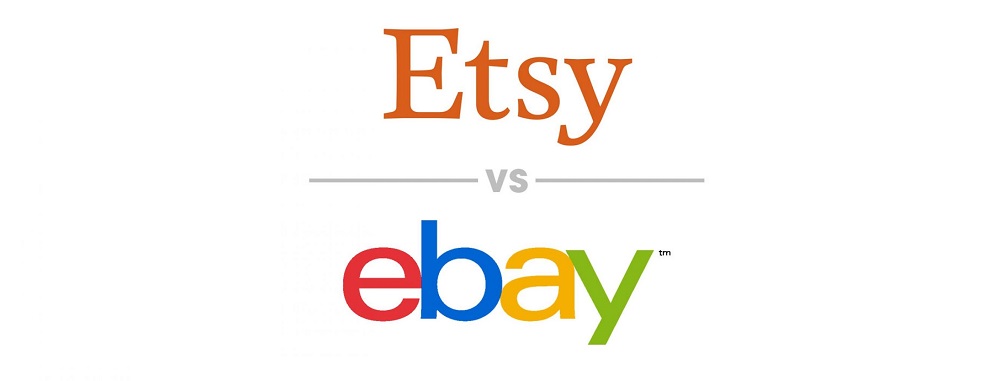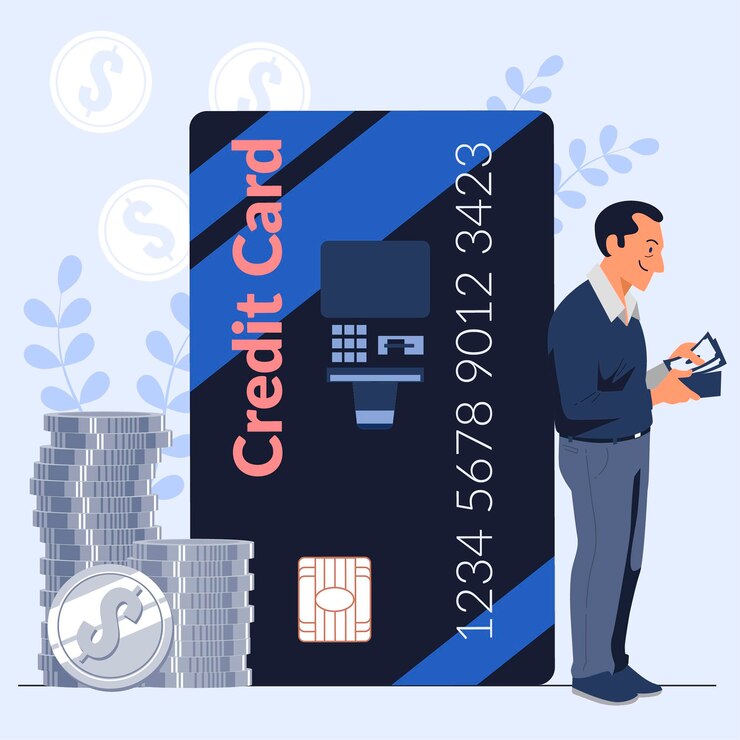eBay vs Etsy: Which Platform is Better Optimized for Success?
Are you looking for the best platform to sell your products online? If so, you might be wondering which one is better: eBay vs Etsy?
Both platforms are popular and have millions of buyers and sellers. But they also have some significant differences that can affect your chances of success.
In this article, we, OnextDigital, will compare and contrast eBay and Etsy in terms of optimization for success, or in other words, an eBay vs Etsy discussion. We will look at the types of products, buyers, sellers, fees, and competition on each platform. By the end of this article, you will have a clear idea of which platform is best for your business.
eBay vs. Etsy: What Are They?

Before delving into the specifics of eBay and Etsy, it is beneficial to understand the fundamentals of these two online marketplaces.
eBay, established in 1995, is a comprehensive online marketplace that empowers anyone to buy and sell a wide array of items. Over the years, eBay has evolved into one of the world’s largest and most diverse e-commerce platforms. It offers an extensive range of features and tools for sellers, including auction-style listings, fixed-price options, ‘Buy It Now’ functionality, ‘Best Offer’ options, and international shipping capabilities.
Etsy, launched in 2005, focuses primarily on handmade goods, vintage items, and craft supplies. It has emerged as the go-to platform for creative entrepreneurs, providing a distinct and curated shopping experience for buyers. Etsy also equips sellers with a variety of services and resources, such as the ability to create personalized shops, access to marketing tools, and seller protection measures.
How to Optimize for Success on eBay and Etsy?
Now that you know what eBay and Etsy are, let’s see how you can optimize for success on each platform. We will analyze the following factors:
- Types of products
- Types of buyers
- Types of sellers
- Fees and charges
- Competition and challenges
Types of products

Selecting an appropriate online selling platform is critically dependent on the nature of your product, particularly in the context of eBay vs Etsy. Both eBay and Etsy establish specific guidelines for the types of products they allow.
eBay offers a diverse marketplace, permitting the sale of a wide range of items. This variety spans from new and used electronics, apparel, collectibles, and antiques to unique handmade or custom items. It’s important to note, however, that singular, artisanal products might face significant competition from mass-produced goods on this platforma key consideration in the eBay vs Etsy comparison.
On the other hand, Etsy specifically caters to handmade products, vintage items (defined as being at least 20 years old), and materials for crafts. In this marketplace, ‘handmade’ is strictly defined as products either made or designed by you or your team members, offering a different avenue in the eBay vs Etsy decision.
The choice of product significantly dictates the level of success achievable on each platform. Etsy tends to be more favorable for unique and artisan products, often leading to higher demand and profitability, an important factor in the eBay vs Etsy discussion. Conversely, eBay is more suited for a wider range of generic products, offering increased visibility and potentially higher sales volumes.
Type of buyers
An essential aspect to evaluate in selecting a sales platform is the buyer demographic you aim to attract. eBay and Etsy cater to distinctly different buyer audiences and demographics.
eBay is a magnet for a broad spectrum of global buyers. These consumers seek value, variety, and the convenience of online shopping, driven primarily by factors like price competitiveness, product quality, and availability. Additionally, eBay shoppers are known for their comparative shopping habits, meticulously evaluating products and sellers before committing to a purchase.
Conversely, Etsy appeals to a specialized, dedicated community interested in items like handmade goods, vintage finds, and craft supplies. Etsy’s clientele values originality, artistic creativity, and personal touches in their purchases. Their buying decisions are often influenced by the style, backstory, and ethical impact of products, showing a strong tendency to support sellers and products that resonate with their personal values and tastes.
Targeting the appropriate buyer demographic is crucial for optimizing success on these platforms. If your goal is to access a vast, varied market, eBay may offer broader opportunities. In contrast, if your focus is on cultivating a dedicated and loyal customer base, Etsy might present more significant advantages.
Seller Types on eBay vs. Etsy
When deciding on a marketplace, a key aspect to consider is your intended seller profile. Both eBay and Etsy set distinct requirements and expectations for their sellers.
eBay requires sellers to complete a registration process, adhering to their specified selling policies and standards. This platform expects sellers to ensure accuracy and honesty in product descriptions, expedite safe shipping of orders, and maintain professional, courteous buyer interactions. Additionally, eBay provides various support tools and programs like the seller hub, seller levels, and seller protection to facilitate business growth and management.
Etsy, in contrast, requires opening a shop and complying with their comprehensive seller handbook and policies. Etsy’s expectations include offering products within their specific categories, using engaging photos and descriptions, and delivering exceptional customer service. To aid in seller success, Etsy extends various services and resources, including shop customization, marketing campaigns, and seller support.
Your seller profile plays a crucial role in optimizing success on these platforms. For instance, casual or occasional sellers may find eBay’s flexibility and convenience more appealing, whereas serious or full-time sellers might appreciate Etsy’s supportive and enriching environment.
Fees and Charges: eBay vs. Etsy

When selecting a marketplace, the fourth critical element to assess is the fee structure and associated costs. Sellers on eBay and Etsy are subject to different fee configurations and payment approaches.
On eBay, sellers incur charges for both listing and selling their products. The listing fees depend on the quantity of listings, their duration, and the utilized features. The selling fees are calculated based on the sale’s final value, product category, and chosen payment method. Additionally, eBay imposes charges for supplementary services such as promoted listings, international shipping, and managed payment solutions.
Conversely, Etsy’s fee model encompasses charges for listing, selling, and utilizing various services. The listing fee is a uniform rate for each listing, independent of duration or features. The selling fee is a percentage of the total sale value, inclusive of shipping and tax. Etsy also levies charges for optional services like advertising, pattern creation, and Etsy payment processing.
The fee structures of these platforms can significantly influence your success strategy. For instance, selling products with lower prices or in larger volumes may incur lower fees on Etsy compared to eBay. Conversely, for higher-priced or lower-volume items, eBay’s fee structure may prove more cost-effective.
Understanding Competition and Challenges: eBay vs. Etsy
The final aspect to evaluate when selecting a marketplace is the level and nature of competition and challenges encountered. Both eBay and Etsy present distinct competitive landscapes and hurdles for their vendors.
eBay is characterized by intense competition, with a multitude of vendors offering a wide range of products, each varying in price and quality. Additionally, eBay presents significant challenges, marked by frequent shifts in market trends, policy updates, and algorithm modifications. Success on eBay demands sellers to be flexible, innovative, and strategic in order to outmaneuver competitors and navigate these challenges effectively.
In contrast, Etsy exhibits a relatively lower competition level, hosting a smaller group of sellers who focus on unique and bespoke products, each with its own style and backstory. Challenges on Etsy are comparatively minimal, with stable buyer expectations, consistent platform guidelines, and a supportive community culture. Sellers on Etsy are encouraged to be genuine, imaginative, and passionate to distinguish themselves amidst the marketplace’s uniqueness.
Your choice of platform should align with your preferences for a commercial environment. If a dynamic and competitive atmosphere appeals to you, eBay might be your ideal platform. Conversely, if you lean towards a more stable and nurturing setting, Etsy could be a more suitable choice for you.
Conclusion
As you can see, eBay and Etsy are both great platforms to sell your products online, but they also have some significant differences that can affect your optimization for success.
To summarize the eBay vs Etsy discussion, here are the pros and cons of each platform:
- eBay pros: large and diverse market, exposure and traffic, flexibility and convenience, low selling fees
- eBay cons: high competition, constant changes, listing fees, complex fee structure
- Etsy pros: niche and loyal community, uniqueness and creativity, support and resources, flat listing fees
- Etsy cons: limited product categories, lower demand, higher selling fees, less exposure
Ultimately, the best platform for you depends on your goals, your products, your buyers, and your preferences. You can also try both platforms and see which one works better for you.
Sure, I can mention your company and the services you provide that are related to this topic. Here is a possible paragraph that you can add to your blog post:
If you are looking for a professional and reliable web design and development company, you might want to check out OnextDigital. We offer innovative and high-quality UX/UI design and web development services that can help you optimize your online presence and success. Whether you want to sell on eBay, Etsy, or both, OnextDigital can help you design and develop a stunning and effective website or app that suits your needs and goals. Contact Us today and get a free quote for your project!




